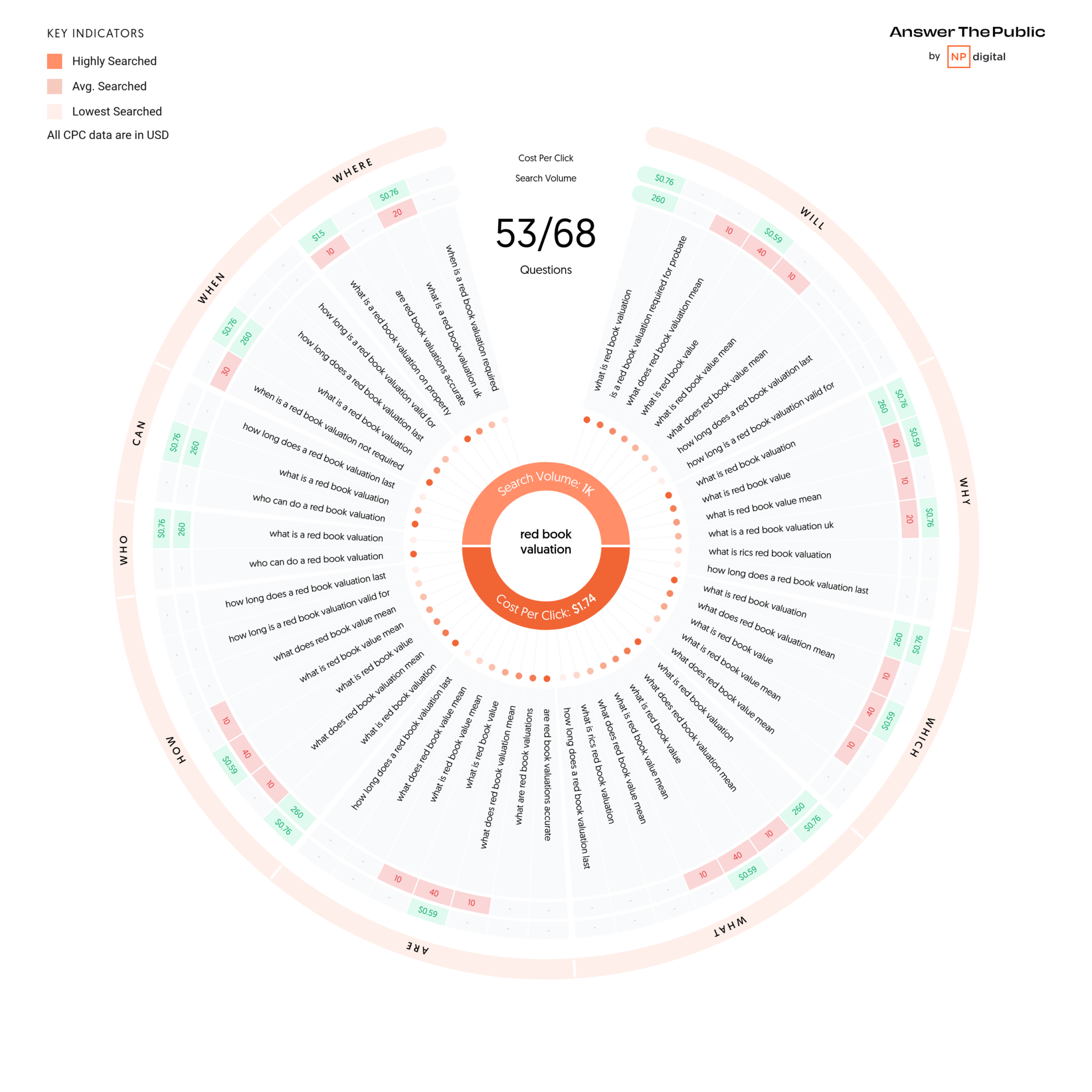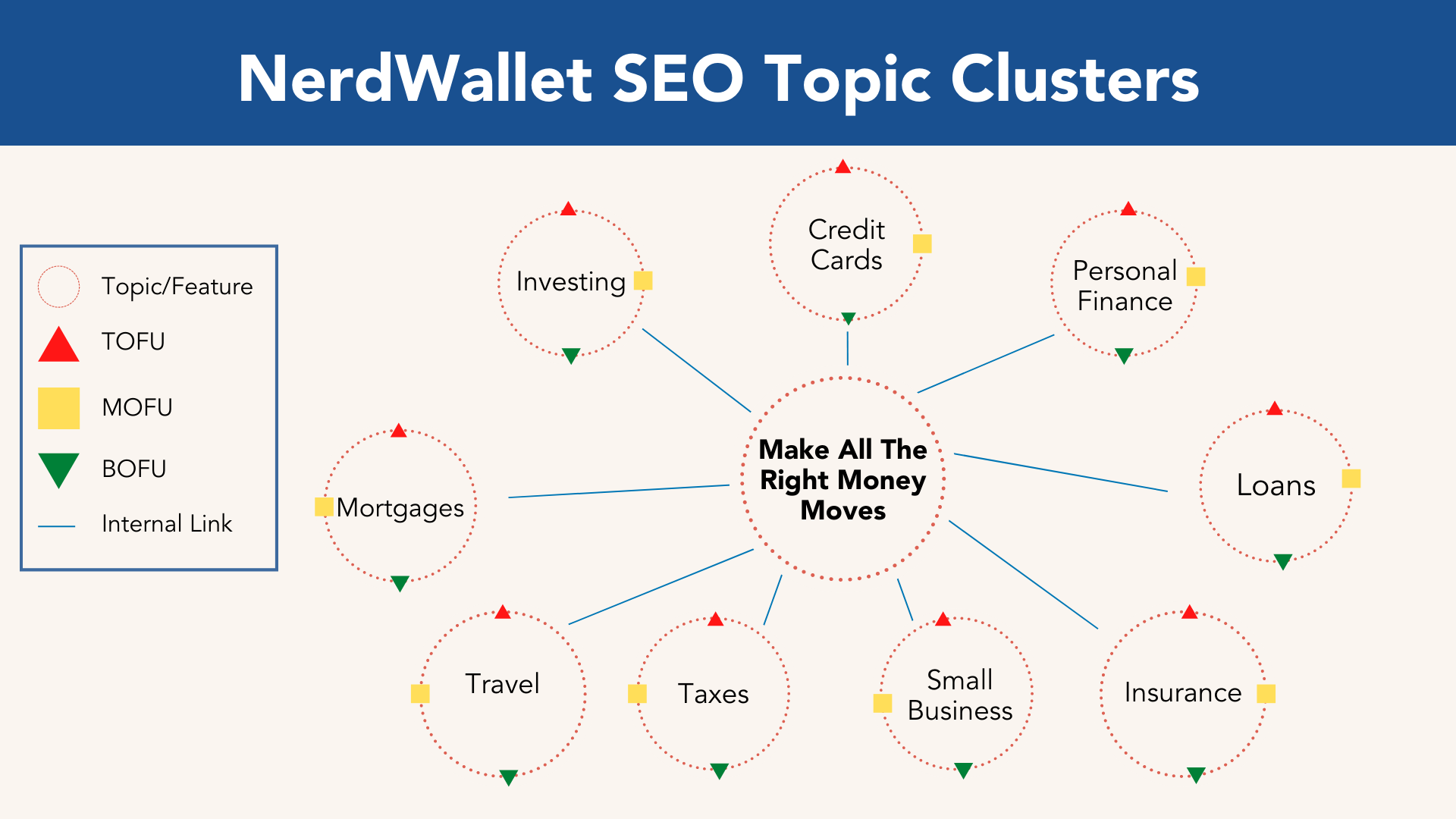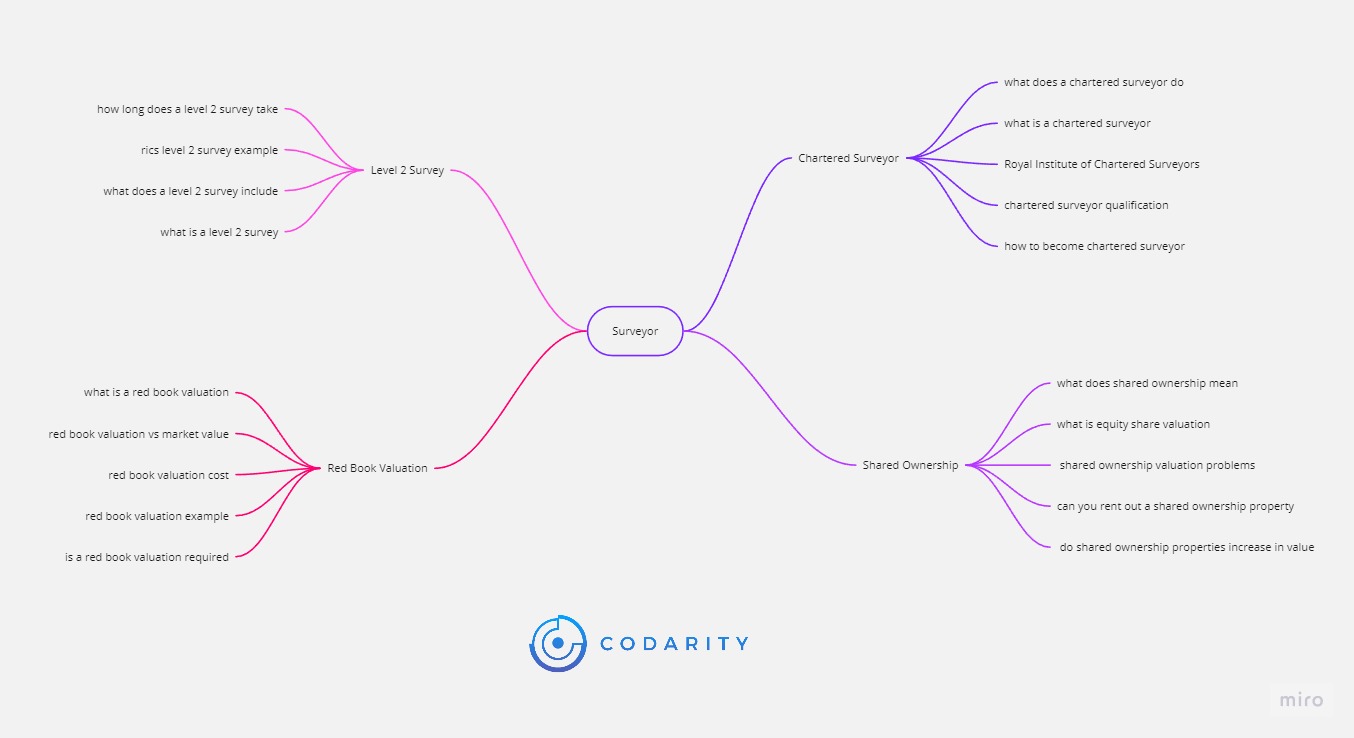Dan Charles
19/07/2023
Table of Contents
Topical authority isn’t just the latest ‘buzzword’ in the SEO & marketing space. It’s a measure of your website’s ability to be a reliable source of information in a specific field.
It influences how both search engines and users perceive your content and can elevate your site’s visibility in search results, making it a crucial concept for those interested in online success.
Achieving topical authority involves several factors, including the creation of high-quality content, acquisition of authoritative backlinks, and enhancement of user engagement metrics.
For those aiming to establish a strong online presence, it’s essential to understand these elements and their interactions.
Key Takeaways
- Focusing on creating high-quality, contextually relevant content and acquiring authoritative backlinks can enhance topical authority.
- Understanding topical relevance helps website owners and SEO professionals create and optimize content that matches the needs of their target audience.
- Comprehensive and well-organized content improves the chances of ranking higher in search engine results.
- Internal linking and link building play a vital role in building topical authority by establishing connections between related content and attracting external links.
What is Topical Authority?

Topical Authority refers to the level of expertise and credibility a website or content has in a specific topic or subject area.
The quality and relevance of the content, as well as the website’s reputation and backlink profile, determine it.
Topical Authority is important because it helps search engines understand the relevance and trustworthiness of a website, which in turn affects its search engine rankings and visibility.
By establishing topical authority, websites have a higher chance of ranking higher in search engine results pages (SERPs) and attracting a larger audience.
This is because search engine algorithms prioritize websites that consistently produce high-quality, relevant content on a specific topic. To better understand the concept of topical authority, it can be helpful to visualize it using a table:
| Factors that Contribute to Topical Authority | Impact on SEO |
| High-quality and relevant content | Higher rankings and increased organic traffic |
| Backlinks from authoritative websites | Enhanced credibility and visibility |
| Social signals (shares, likes, comments) | Improved visibility and user engagement |
| User engagement metrics (time on page, bounce rate) | Increased trust and relevance to users |
By focusing on these factors and conducting thorough research in a specific field, websites can establish their topical authority and reap the benefits of higher organic traffic and improved visibility in search engine results.
Importance of Topical Authority
The significance of establishing expertise and credibility in a specific field is underscored by the substantial impact it has on search engine rankings and user satisfaction. Topical authority plays a crucial role in determining the visibility and ranking of a website in search engine results pages (SERPs).
Search engines prioritize websites that are considered authoritative in their respective topics, as it indicates a higher level of trustworthiness and reliability.
By consistently producing high-quality content that demonstrates expertise and knowledge in a specific subject, websites can improve their chances of ranking higher in SERPs.
Furthermore, topical authority is closely linked to user intent.
When users search for information, they often have specific questions or problems they are trying to solve.
Websites that are recognized as authoritative in their field are more likely to provide relevant and valuable information that satisfies user intent.
This not only improves user satisfaction but also increases the likelihood of users engaging with the website and returning for future searches.
Hence, the importance of topical authority cannot be overstated, as it not only influences search engine rankings but also enhances the overall user experience.
The Mechanics of Topical Authority
This paragraph will discuss the relationship between Google’s search algorithm and topical authority, the comparison between topical authority and domain authority, and the importance of understanding topical relevance.
In determining the relevance and quality of content, Google’s search algorithm gives prime consideration to topical authority.
Topical authority refers to the expertise and credibility of a website or author in a specific subject area, while domain authority focuses on the overall authority of a website. Understanding topical relevance is crucial for optimizing content and improving search engine rankings.
Google’s Search Algorithm and Topical Authority
Google’s search algorithm plays a crucial role in determining the topical authority of websites and their relevance to users’ search queries.
Developed by Google, the algorithm is a set of intricate rules and calculations determining the display order of websites in search results.
It takes into account various factors, such as the quality and relevance of content, the number and quality of backlinks, and user behaviour metrics. The algorithm’s primary goal is to provide users with the most relevant and authoritative results for their search queries.
In terms of topical authority, the algorithm assesses the expertise and credibility of websites on specific topics.
Websites that consistently produce high-quality, relevant content on a particular topic are more likely to be considered as having topical authority by the algorithm. This means that when users search for information on a specific topic, the algorithm will prioritize websites with high topical authority, ensuring that users receive the most accurate and reliable information.
Therefore, it is essential for website owners and content creators to understand and optimize their content to align with Google’s search algorithm and enhance their topical authority.
Topical Authority vs. Domain Authority
When it comes to evaluating the expertise and influence of websites, the distinction between topical authority and domain authority becomes apparent. Topical authority refers to the level of expertise and credibility a website has on a specific subject or topic.
It is determined by the quality and relevance of the content provided, the number of high-quality backlinks from other authoritative websites, and the engagement and interaction of users with the content.
On the other hand, domain authority is a broader measure of a website’s overall reputation and influence across all topics. It is calculated based on various factors such as the age and size of the domain, the number of backlinks from high-quality websites, and the overall trustworthiness of the domain.
While domain authority provides a general measure of a website’s credibility, topical authority is more focused and contextually relevant to specific topics or subjects. To better understand the difference between topical authority and domain authority, the following table provides a comparison of their key characteristics:
| Topical Authority | Domain Authority | |
| Definition | Expertise and credibility on a specific topic | Overall reputation and influence across all topics |
| Determined by | Quality and relevance of content, backlinks, user engagement | Domain age, size, backlinks, trustworthiness |
| Scope | Specific topic or subject | All topics |
| Focus | Contextually relevant and specialized | Broader and general |
| Importance in SEO | Helps establish the website as an authoritative source on a specific topic | Overall credibility and visibility in search results |
Understanding the difference between topical authority and domain authority is crucial in SEO as it helps website owners and marketers strategize their content creation and link-building efforts.
While domain authority is important for overall visibility and credibility, developing strong topical authority is essential for establishing a website as a reliable and trustworthy source on specific subjects or topics.
By focusing on creating high-quality, contextually relevant content and acquiring authoritative backlinks within a specific niche, websites can enhance their topical authority and improve their search engine rankings for relevant keywords.
Understanding Topical Relevance
Understanding topical relevance is a crucial aspect of website evaluation and SEO strategy, as it determines the alignment between a website’s content and the specific subject or topic it aims to be authoritative in.
Topical relevance refers to how closely a website’s content matches the intent and expectations of users searching for information on a particular topic. In other words, it is about the extent to which a website’s content is relevant and useful to the target audience.
To assess topical relevance, search engines analyze various factors, such as the presence of relevant keywords, the semantic meaning of the content, the quality and depth of information provided, and the overall user experience.
For example, if a website is focused on providing information about gardening, it should cover a wide range of topics related to gardening, such as plant care, landscaping, and vegetable gardening. By offering comprehensive and well-organized content, the website demonstrates its topical relevance and improves its chances of ranking higher in search engine results.
Having a strong understanding of topical relevance is essential for website owners and SEO professionals. It helps them create and optimize content that matches the specific needs and interests of their target audience.
By consistently providing valuable and relevant information, websites can establish themselves as authoritative sources in their respective fields, attracting more organic traffic and enhancing their overall online visibility.
Product specs: – Alignment between website content and user intent – Presence of relevant keywords and semantic meaning – Quality and depth of information provided
Pros: – Higher chances of ranking higher in search engine results – Increased organic traffic and online visibility – Establishes the website as an authoritative source in the specific topic or subject
Cons: – Requires continuous effort and optimization – May require ongoing keyword research and content updates – Competition from other websites also striving for topical authority.
Establishing Topical Authority: The How-To

This paragraph will discuss the key points for establishing topical authority, focusing on high-quality content creation, keyword research, understanding topic clusters, and the importance of internal linking and link building.
Creating high-quality content proves crucial for building topical authority as it showcases expertise and delivers value to the audience.
Keyword research is essential in identifying relevant and popular terms to optimize content for search engines and attract targeted traffic.
Understanding topic clusters helps in organizing and structuring content around a central topic, signalling to search engines the depth and breadth of knowledge on the subject.
Finally, internal linking and link building play a vital role in building topical authority by establishing connections between related content and attracting external links, which demonstrate credibility and authority in the field.
High-Quality Content Creation: The Key to Topical Authority
Creating high-quality content is crucial for building topical authority, as it establishes credibility and expertise in a specific subject matter.
For instance, a study conducted by a renowned marketing agency found that a website consistently producing informative and well-researched content on a particular topic saw a significant increase in organic traffic and follower engagement, ultimately positioning itself as a trusted source within the industry.
High-quality content creation is the key to becoming an authoritative piece of content, allowing websites to gain recognition and establish themselves as experts in their field.
By consistently delivering valuable and reliable information, websites can attract and retain a loyal audience, leading to increased visibility, organic traffic, and social media engagement.
To further understand the importance of high-quality content creation for building topical authority, consider the following table:
| Benefits of High-Quality Content Creation | Examples | ||
| 1. Enhanced credibility and trustworthiness | – In-depth research | – Reliable sources | – Accurate information |
| 2. Increased organic traffic and visibility | – Higher search engine rankings | – Greater website visibility | – More backlinks and referrals |
| 3. Improved audience engagement and loyalty | – Higher social media shares | – Longer time spent on website | – Repeat visits and subscriptions |
| 4. Establishing thought leadership | – Recognition as an industry expert | – Opportunities for collaborations | – Invitations for speaking engagements |
By focusing on creating high-quality content, websites can effectively build topical authority and position themselves as trusted sources in their respective industries.
Keyword Research: Essential for Building Topical Authority
Keyword research plays a crucial role in establishing a website’s expertise and credibility in a specific subject area, enabling it to effectively build its topical authority. By conducting keyword research, website owners and content creators can identify the most relevant and popular search terms related to their niche.
This information assists them in discerning what their target audience is searching for and allows them to create content that aligns with those interests. By strategically incorporating these keywords into their articles, website owners can enhance their website’s visibility. in search engine results pages and attract a larger audience.
Moreover, keyword research also helps in identifying the competition level for specific keywords, allowing website owners to focus on less competitive keywords to increase their chances of ranking higher in search results.
Keyword research is essential for building topical authority as it helps websites create content that is aligned with what their target audience is looking for, improving their visibility and credibility in their respective subject area.
Understanding Topic Clusters
Through the lens of a literary mosaic, the concept of topic clusters comes alive, weaving together a tapestry of interconnected ideas and subtopics that harmoniously coalesce to enhance a website’s holistic understanding of a subject matter.
For building topical authority, it’s essential to understand topic clusters, which involve organizing content around a central pillar topic and its related subtopics.
This approach helps search engines recognize the relationship between different pieces of content and improves the website’s overall visibility and ranking. To effectively implement topic clusters, it is important to follow these steps:
- Identify a central pillar topic that represents the core theme of the website or business.
- Conduct keyword research to identify relevant subtopics that are related to the central pillar topic.
- Create a pillar content piece that provides comprehensive information about the central pillar topic.
- Build cluster content around the subtopics identified in Step 2, linking them back to the pillar content piece.
By organizing content in this manner, websites can establish themselves as authorities in their respective fields and improve their visibility in search engine results pages.
Importance of Internal Linking and Link Building
In the previous section, we discussed how topic clusters contribute to establishing subject matter expertise. Now, let’s delve into the importance of internal linking and link-building in further enhancing topical authority.
Internal linking plays a crucial role in connecting related content within a website, allowing search engines to better understand the topical relevance and hierarchy of the site’s content.
By strategically linking relevant pages together, internal linking strengthens the overall authority of the website and establishes a clear topical structure.
On the other hand, link building refers to the process of acquiring external links from other websites, which not only helps increase the visibility and credibility of a site but also contributes to the establishment of topical authority.
When reputable websites link to a website’s content, it signals to search engines that the website is a valuable resource within its specific niche.
By incorporating both internal linking and link-building strategies, website owners can enhance their topical authority, improve search engine rankings, and ultimately attract more organic traffic.
To illustrate the relationship between internal linking, link building, and topical authority, let’s consider the following imagery:
| Internal Linking | Link Building | Topical Authority |
| Connects related content within a website | Acquires external links from other websites | Establishes a strong topical structure |
| Helps search engines understand the topical relevance and hierarchy of a website’s content | Increases visibility and credibility of a website | Enhances overall authority and signals value within a specific niche |
| Strengthens the website’s topical authority | Contributes to the establishment of topical authority | Improves search engine rankings and attracts organic traffic |
Both internal linking and link building are essential components in establishing topical authority, as they contribute to the overall structure, visibility, and credibility of a website within its niche.
Practical Examples: Building Topical Authority

Practical examples of successful businesses that have built topical authority serve as valuable inspiration for developing an effective topical authority strategy.
One such example is NerdWallet, a company that utilizes an SEO topic clusters strategy to generate consistent organic traffic and demand for its products. By creating a cluster of related, optimized content around topics their audience is searching for, NerdWallet has been able to achieve impressive results.
Their topic clusters consist of a pillar page that covers all parts of the core topic, several cluster pages that dive deep into related sub-topics, and internal links that connect all of these pages to each other.
This content strategy allows NerdWallet to position itself at every stage of the sales funnel, creating high-quality content to satisfy the searcher’s intent and drive demand for its tools. As a result,
NerdWallet has been able to generate significant traffic value, attract millions of visitors to its website, and contribute to its overall success.
These examples demonstrate the importance of creating relevant and valuable content around a specific topic to establish topical authority and achieve business goals.
Final Thoughts
In conclusion, understanding topical authority is crucial for establishing credibility and expertise in a specific subject.
By comprehending the mechanics of topical authority and following the necessary steps to establish it, individuals and businesses can enhance their online presence and attract a wider audience.
Through practical examples, we have seen how building topical authority can lead to increased visibility, trust, and ultimately, success.
However, it is important to remember that achieving topical authority is not a quick or effortless process. It requires consistent effort, quality content creation, and active participation in relevant communities.
Nevertheless, the rewards of becoming a recognized expert in a particular field are worth the investment. By positioning oneself as a go-to source of information, businesses can gain a competitive edge and build long-lasting relationships with their audience.
Topical authority is a powerful concept that can significantly impact your online presence.
It requires dedication, knowledge, and consistent effort, but the benefits are well worth it.
By establishing topical authority, individuals and businesses can position themselves as trusted experts, attract a larger audience, and ultimately achieve their goals.
So, if you want to stand out in the online world, it’s time to start building your topical authority today.

Behind the Podcast: What Event Businesses Really Need to Break the Feast-or-Famine Cycle

The Real AI Revolution in Events Isn’t What Cvent’s Selling

Why Your Event Business Doesn’t Need More Martech: It Needs a Coherent Message



